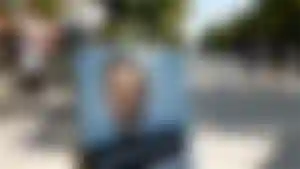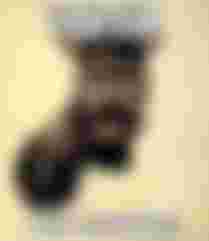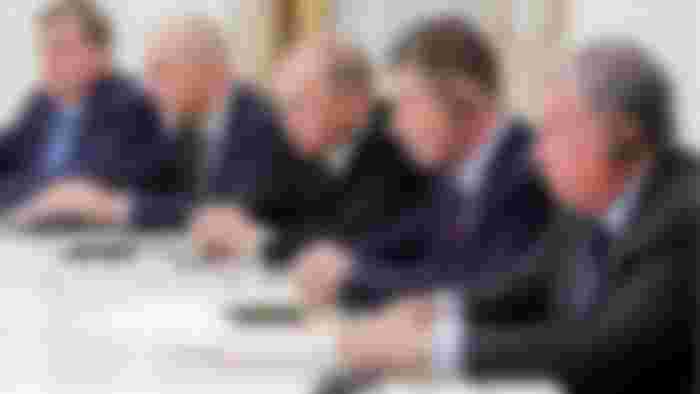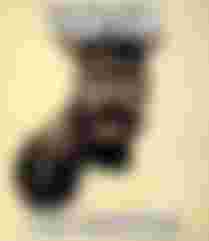
As mentioned in my previous article, exploring the misfortunes Alexey Navalny, the "leader of Russian opposition" had to endure thus far, though Alexey has thankfully recovered from the poisoning, the story is far from being over. In this post, I would like to focus on and critically approach a news article published by RIA News, a remown mass media site that is offering another, the Russian, or perhaps even the 'pro-governmemt' perspective. I will go through the original article paragraph by paragraph, pointing out things that do not make a lot of sense or things that I find particularly biased or unfair. In doing so, I hope to sketch the perspective adopted by Russian sources, as well as establish a couple of important common themes that play a central part in attitudes that Russian media holds towards the West.

The article starts off by discussing Navalny's interview with the German newspaper "Der Spiegel", in which Navalny attributes responsibility for his poisoning to no-one else but Vladimir Putin. The author of the RIA article, Mr Akopov (Mr.A here and below) comments on Navalny's interview, saying that: "[Navalny's] logic is ironclad: if he was poisoned by a Novichok-type substance, then the order to do so must have been given by the president, as this horrible poison is only in possession of the Russian secret services". Already, at the very beginning of Mr A's anysis we see an extremely dismissive attitude that is something akin to the "victim-blaming" phenomenon. Mr. A does not feel it important to condemn the fact of the poisoning in any way, or to show basic human compassion to the victim: he skips over that part completely, and instead focuses on the apparent "ridiculousness" of Navalny's claims. He continues to state that "[Navalny's whole accusation] was built on the fact that Novichok was used, but, peculiarly, it was only the German medics that ascertained the fact of its use; its traces were not found by the Russians" while Navalny was treated at the hospital. Mr A adds, that the Germans "refused" to share their findings with Russia. This is partly true: according to this article, Germany submitted their findings to the Organisation for the Prohibition of Chemical Weapons based in the Hague and not to Russia directly; however, as the article states, Russia is a member of that organisation and presumably may make use of an internal mechanism to access the relevant data. It is unclear whether Russia has in fact obtained the data, but the Russian Foreign Ministry was quick to call Germany's actions "uncooperative". In doing so, it could be argued, the Foreign Ministry had created the foundation for the Russian side of the story that is being blasted at the people at home, namely, that 'if the Germans don't want to give the data to us directly, then something must be afoot!"

Mr A then poses a rhethorical question, namely whether someone else, and not Russia, could had been behind the poisioning. The way he formulates it though is quite typical of the Russian media: he uses sarcasm to point the seeming ridiculousness of the fact that the poisoning was ordered by the Kremlin, because if the Kremlin wanted someone dead, they would have already been dead. In this way, Mr A turns a completely legitimate question - who else could have profited from Navalny's poisoning?- into a humble-brag of sorts. At first he says that the scary, but ineffective poison that is Novichok is a great tool to "implicate the interested party", alluding to the claim that the poison is of Russian origin and hence, as the western media believes, can only or mostly be used by the Russians. Then the sarcasm starts coming through: he mentions the so-called "on-the-fencers", alluding to those who actually don't buy into this apparent Western propaganda and smear campaign, and adoptes their perspective to ask the following: if the Kremlin truly wanted Navalny, as well as the infamous Mr and Ms Skirpal dead, why weren't they actually killed? This is a reasonable statement, on the face of it at least, but why frame it this way? It is as though Mr A is boasting between the lines: if Moscow really and truly wanted someone dead, nobody in the world would be able to save them. This phrase does nothing to refute the claim that Russia could have been behind the poisioning, but instead, like a child at a playground, mocks the Western perspective. Is that really good journalism?

Around paragraph 5 is where it gets more interesting. Mr A. finally gets to the section of Navanlny's interview to "Der Spiegel", where N calls Europe to impose sanctions on the "Russian elite" and their ability to travel into Europe and spend (as well as hide, I suppose) their money outside the jurisdiction of the Russian law enforcement. Mr A is shocked by such a suggestion to his core: He "calls for sanction against his own [people]? But then, I guess, (sarcasm again), they are not his compatriots, they are the killers!" This is another beloved tool in the arsenal of Russian news sources: to create a visible divide between the individual, who is branded an outcast, and THE PEOPLE, the nation, the ones who know the truth, the patriots et cetera. In no way did Navalny show support for sanctions against Russia as a country and the Russian people, no, it was only the elites, the known 'offenders', the 'shadow cabinet' that should be affected and whose freedom of movement should be restricted. So why is Mr A so quick to cry "Wolf!" when there isn's one? Why does he blatantly ignore the intent behind Navanly's words, diverging the reader's attention with a kind of 'he wants ALL of us to suffer, the bastard"? The answer lies on the surface.

Having dealt with the first volley of shots fired at Navanlny's character, Mr A gets more and more steamed up. He quotes a speaker from the Russian parliament who calls Navalny a "shameless scoundrel" for having the audacity to question the integrity of staff on the Russian side and who states that everyone, from doctors to pilots to the president himself were doing their best to save his life. The speaker continues that "the whole poisoning situation has been staged by the West to put Russia under pressure and prevent it from supporting Belarussian sovereingty" Navalny and his wife did indeed question the integrity of the doctors treating Navalny in Russia, and I suppose that is fair enough: when someone is literally trying to kill you, you tend to be really jumpy, and if one takes into account the way the Russian system works, the victim is not safe even in their own home, let alone at a hospital. However, the second part of the speaker's statement is very telling and is another common media device: it serves to create the "us and them" division and is then prompt to accuse them, in this case the West (it is always the West, for at least 50 years or so), of meddling in Russian politics and preventing Russia from achieving its legitimate and peaceful objectives. This is a blatant tactic of scapegoating and pointing fingers that rarely works out in diplomatic relations...
(more in part 2)
Source:
Article by RIA News
https://ria.ru/20201003/navalnyy-1578133112.html
Article reporting Russia's request to share Navalny's data
https://europost.eu/en/a/view/germany-hands-navalny-test-results-to-international-watchdog-30750
Images:
Cover image:
https://imgflip.com/memegenerator/183419281/Its-Always-Sunny-Crying
https://ria.ru/20201003/navalnyy-1578133112.html
https://europost.eu/en/a/view/germany-hands-navalny-test-results-to-international-watchdog-30750
https://www.deviantart.com/binge-326/art/We-are-number-one-but-it-s-fanart-664700141
https://www.themoscowtimes.com/2020/07/01/the-taming-of-the-elite-putins-referendum-a70750
https://memegenerator.net/instance/61064937/lord-kitchener-you-sir-are-a-scoundrel




